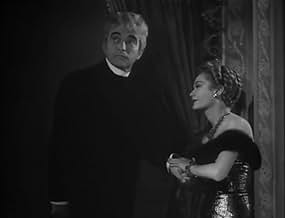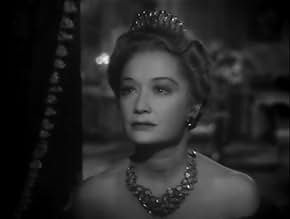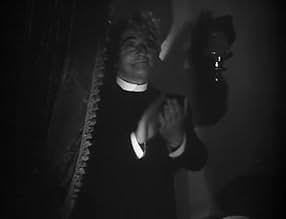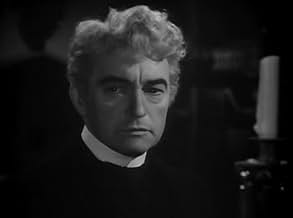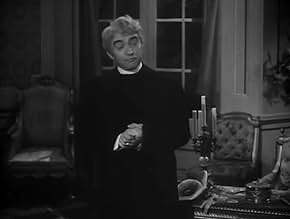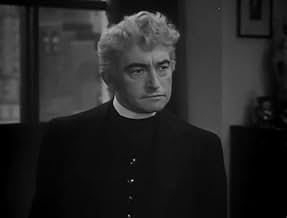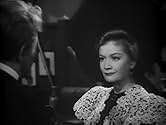Ajouter une intrigue dans votre langueA messy divorce leaves Mrs. Leslie Carter shunned by Chicago society for being an adulteress and forbidden from having custody of her son. She's determined to return to her hometown in a few... Tout lireA messy divorce leaves Mrs. Leslie Carter shunned by Chicago society for being an adulteress and forbidden from having custody of her son. She's determined to return to her hometown in a few years as a success and with enough money to fight to get her son back. In order to realiz... Tout lireA messy divorce leaves Mrs. Leslie Carter shunned by Chicago society for being an adulteress and forbidden from having custody of her son. She's determined to return to her hometown in a few years as a success and with enough money to fight to get her son back. In order to realize her plans, she heads to New York with ambitions of being a great actress. Despite having... Tout lire
- Réalisation
- Scénario
- Casting principal
- Récompenses
- 2 victoires au total
- Dudley Carter
- (as Johnnie Russell)
- Mrs. Peabody
- (non crédité)
- Miss Humbert
- (non crédité)
- Man in Belasco's Outer Office
- (non crédité)
- Observer on Courthouse Steps
- (non crédité)
- Audience Member
- (non crédité)
- Scenic Artist
- (non crédité)
Avis à la une
Mrs. Carter was a society socialite whose rather messy divorce and custody battle made her want to seek employment in the theater when she couldn't get a job doing anything else. After a few tries she hook up with David Belasco who molds her into a glamorous stage star from the turn of the last century.
What I found amazing in this whole film was that we never do find out just what in this divorce made her such a notorious woman. The film opens as the divorce proceeding is about to conclude, we never see what it was all about.
We do find out that the terms of the divorce gave her limited visitation rights to her son. That's given as the real reason for her determination to succeed as opposed to possibly trading in on her notoriety. A reason today's audience would definitely understand. In fact why was she billed as "Mrs. Leslie Carter" if it wasn't for the notoriety.
Miriam Hopkins as Carter and Claude Rains as Belasco give a good account of themselves. So do those two old gals Laura Hope Crews as Hopkins's mother and Helen Westley as the owner of the theatrical boardinghouse where they reside. Those two date back to when Mrs. Leslie Carter was a big name on Broadway.
Richard Ainley of the Ainley British theatrical family gives a wooden performance in a part that's underwritten as Carter's second husband. Wasn't Errol Flynn available?
Back in the 1890s divorce in and of itself was scandal. So why weren't we given the salacious details?
I'm a real fan of Hopkins. I'm not a huge fan of 1920s or 1930s film, so my fascination with her is limited to the 1940s and beyond. Let's face it, she could deliver her lines as fast as a racing horse. And she excelled in doing so.
This is pure Hollywood fare. It flows as such. Tons of plot loopholes. Cliche dialogue. Over the top execution. Relax and enjoy. Stop over-analyzing.
The real Mrs. Leslie Carter had one of her final roles before her death in 1935's Becky Sharp, which may have played a part in Hopkins wishing to do this biopic. From what I can gather, much of the material in the movie is fictitious, designed to make Carter look like more of victimized saint, when naturally the truth is much murkier. One wouldn't also gather why Carter was considered a sensation, as all of the play reenactments in the film are hammy and phony. Hopkins never manages to be likable, and I say this as someone who has liked Hopkins in a number of other things. Rains also gets shout, scowl, yell, thrash around, and then shout some more. Speaking of bad wigs from The Howards of Virginia, Claude sports one here. The most worthwhile scene in the whole movie was a catty dinner scene at a boarding house for theatrical people.
The film begins with the divorce trial of Mr. and Mrs. Carter. All the reasons for this and what led to this isn't mentioned--other than the fact that she (Miriam Hopkins) was seen as an adulteress. In the end, she loses the case and her millionaire ex-husband is given custody of their young son. In a desperate attempt to earn money, she heads to New York and has some very naive expectations about becoming a star. However, surprisingly, she meets the great Belasco (Claude Rains) and he molds her into a star.
After years of being a star, Mrs. Carter has the nerve to have a personal life. When she marries another actor, Belasco writes her off--vowing never to speak to her again--and vice-versa. What follows is a lean period--when jobs are scarce and she is at her lowest. But, being a trooper down deep, she manages to pull it together and make a career for herself on her own. Oddly, however, this feud and her subsequent success was handled way too fast--creating little tension and ending very abruptly--a major handicap for the film. However, it's still worth watching--as Hopkins is at her best.
Belasco was not flawless. He was an egomaniac, who insisted on total obedience to his direction if anyone sought him as an acting mentor (as Mrs. Carter did). He was also determined to be memorable as a personality, going about in a suit reminiscent of the Roman Catholic Church (he basically dressed like a priest). While he did improve the acting of his period, his taste in drama tended to be of the melodramas and sentimental play variety. Brooks Atkinson (in his book, Broadway) dismissed him as a ham and poseur, but he was better in bringing a professional structure to acting. Too frequently in that period actors were not as prepared or controlled to give their audiences their money's worth of good acting.
Mrs. Leslie Carter was a minor socialite from the midwest who wanted to go on stage. In the movie she is played (rather well) by Miriam Hopkins. Mrs. Carter got involved in a messy divorce from her husband, in which she lost custody of her only son. Under Belasco's tutalage she became one of the leading female stars of her age. She did try to resume her relationship with the son, but she was so involved in building her art and stage reputation her son was nearly ten when she saw him again. The relationship was never resumed. As for her career it blossomed, but she decided to remarry. Belasco expected to be consulted and wasn't, so he broke with her.
After a decade of floundering, a rapproachment with Belasco was arranged, and her career resumed it's previous success.
As an interesting slice of theatrical history THE LADY WITH RED HAIR (which, ironically, is a black and white film) is worth watching. Rains and Hopkins give their typically best work in their lead roles. I would definitely recommend the film.
Le saviez-vous
- AnecdotesLouis Payne, the husband of Mrs. Leslie Carter in real life, coached Richard Ainley, who was playing him in the movie.
- GaffesNone of the Broadway plays mentioned in the movie were performed by Mrs. Leslie Carter. Her Broadway debut was in a play called "The Ugly Duckling" in 1890, not "The Way of Beauty." Her second play was "Zaza," not "The Lady From France." It is not known why the names of her plays were changed.
- Citations
David Belasco: The scene is finished... either applaud or get out of the way.
- Bandes originalesTwinkle, Twinkle, Little Star
(uncredited)
Traditional
Played offscreen at the start of Miss Humbert's school sequence
Meilleurs choix
Détails
- Date de sortie
- Pays d’origine
- Langue
- Aussi connu sous le nom de
- La dama de cabello rojo
- Lieux de tournage
- Société de production
- Voir plus de crédits d'entreprise sur IMDbPro
- Durée1 heure 18 minutes
- Couleur
- Rapport de forme
- 1.37 : 1


